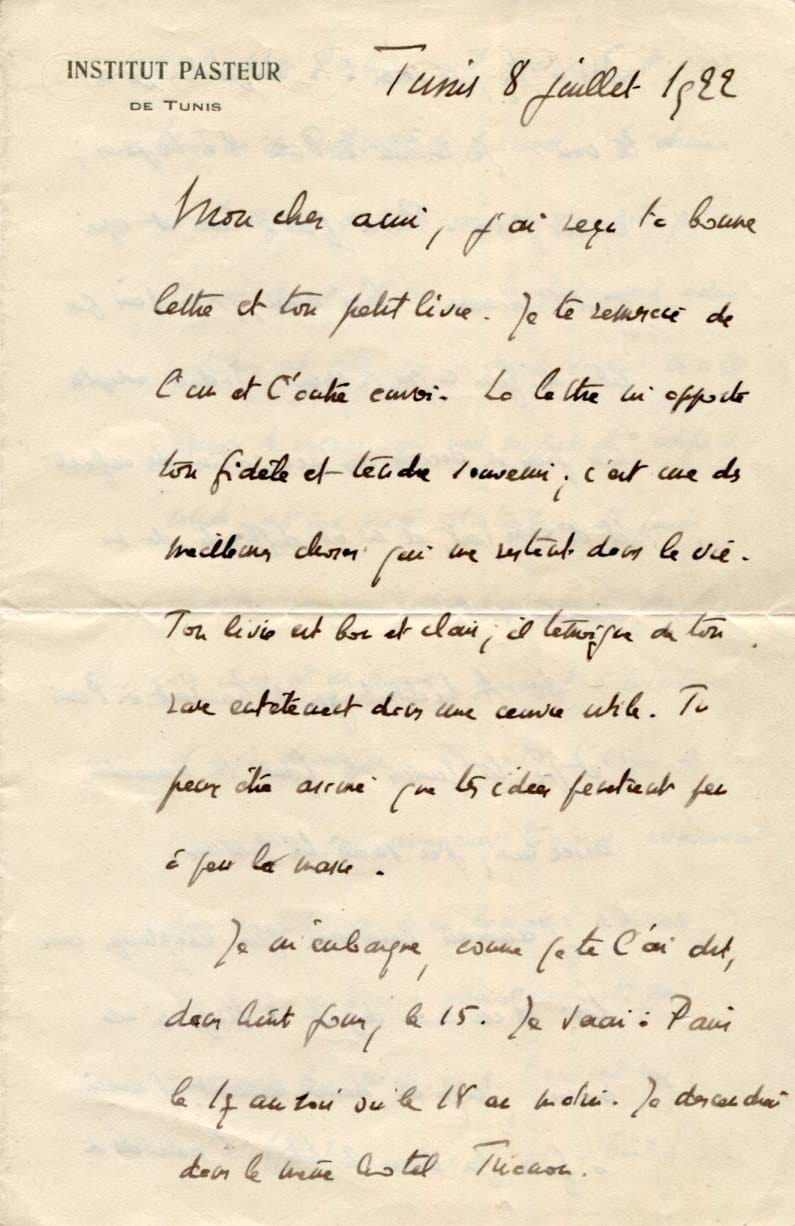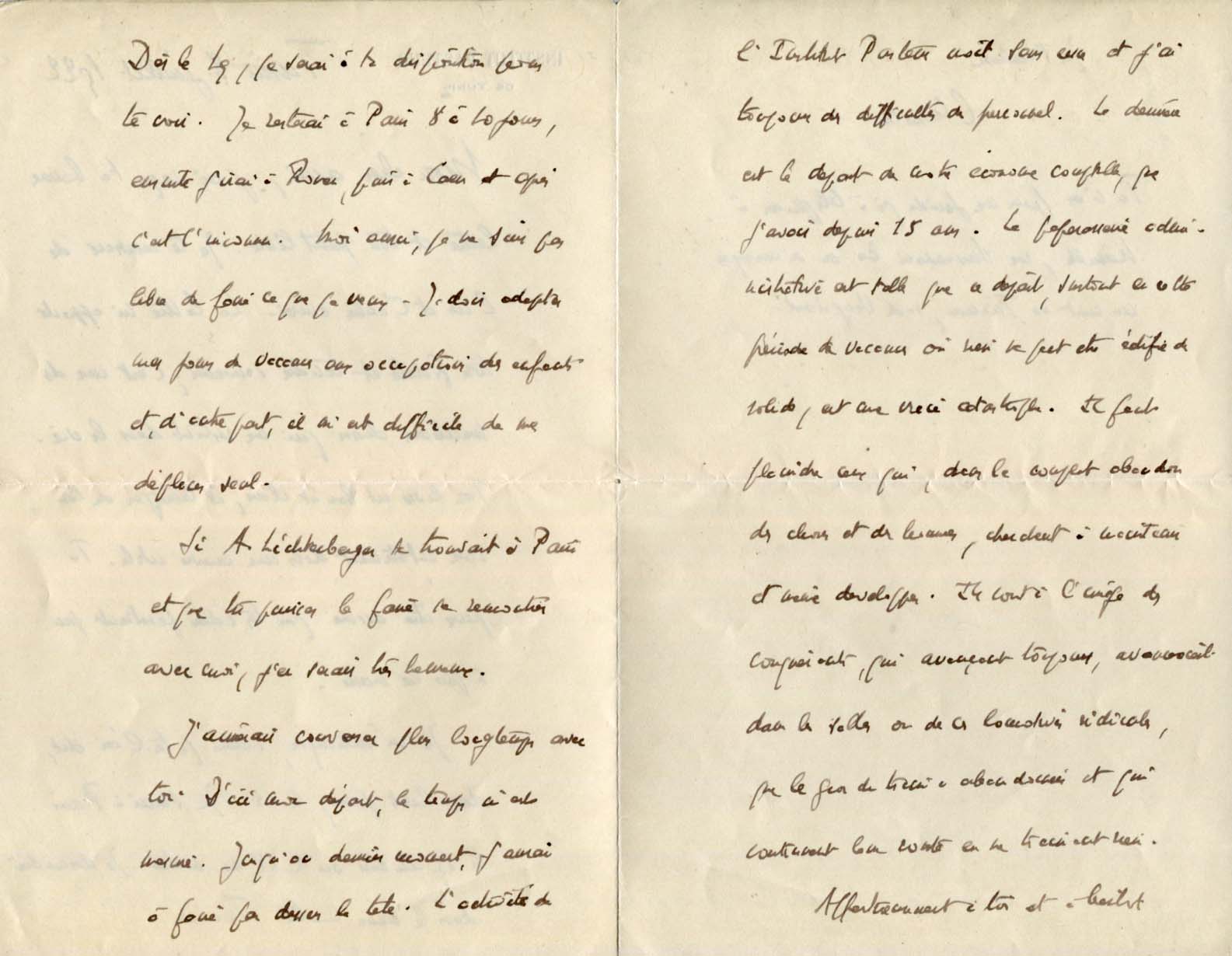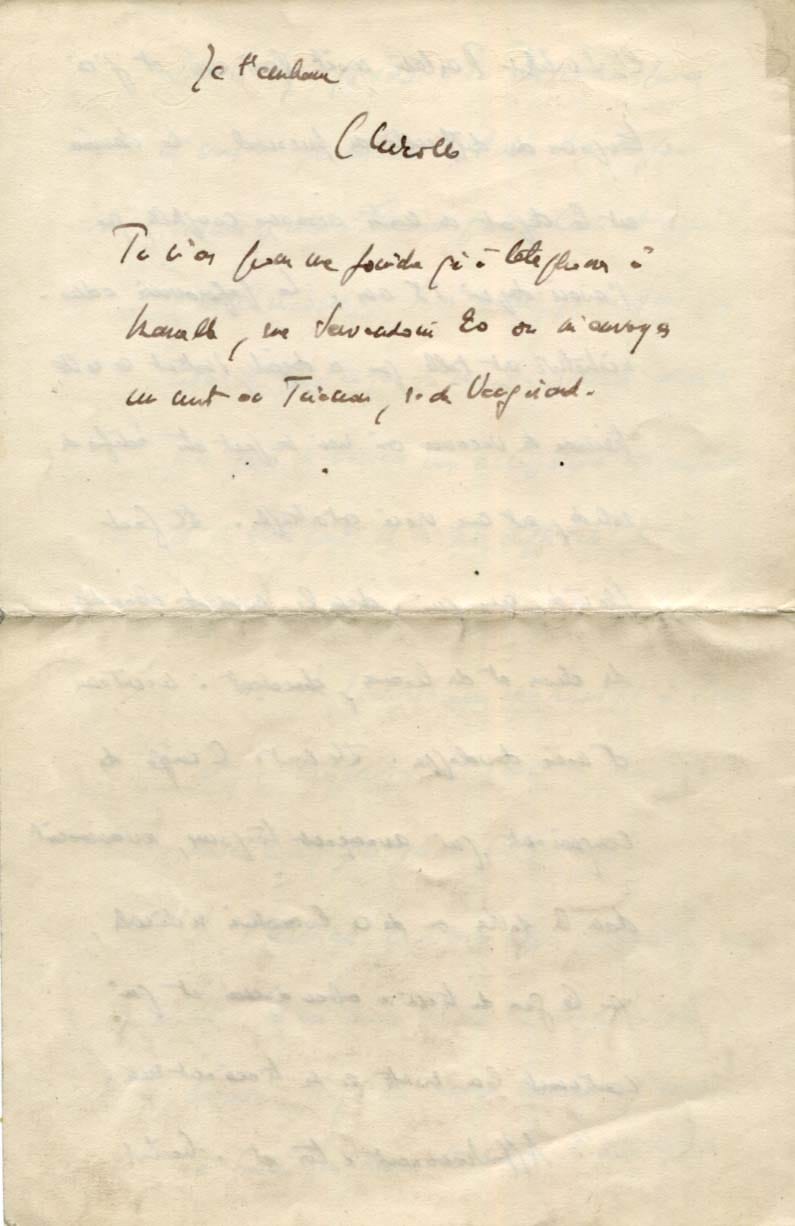Description
"Tunis 8 juillet 1922
Mon cher ami, j'ai reçu ta bonne lettre et ton petit livre. Je te remercie de l`eu et [...] envoi. [...] Ton livre est bon et clair [...]"
Translation:
"Tunis July 8, 1922
My dear friend, I received your kind letter and your little book. Thank you for sending it. [...] Your book is good and clear [...]"
Further Information on the person
Profession:
(1866-1936) French bacteriologist who received the Nobel Prize in Medicine
Year of Birth: 1866
Certificate of authenticity
All of our pieces are sold with a Certificate of Authenticity. If a piece turns out to be wrong or if you do not like an autograph, you will get your money back for a lifetime.
Payment & Security
Your payment information is processed securely. We do not store credit card details nor have access to your credit card information.



